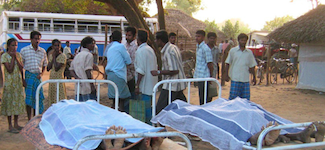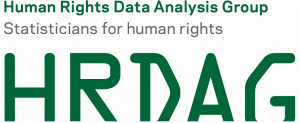Counting the Dead in Sri Lanka
 In advance of the tenth anniversary of the end of the war in Sri Lanka in 2009, HRDAG and the International Truth and Justice Project (ITJP) urge groups inside and outside Sri Lanka to share existing casualty lists, and even more importantly, to go out and record new ones.
In advance of the tenth anniversary of the end of the war in Sri Lanka in 2009, HRDAG and the International Truth and Justice Project (ITJP) urge groups inside and outside Sri Lanka to share existing casualty lists, and even more importantly, to go out and record new ones.
“We at least owe the dead the courtesy of collecting their names,” said ITJP Executive Director, Yasmin Sooka. “The scale of human loss is important to quantify and the final list of names which we will collate can also inform the memorialisation process which is key for communities.” Ms. Sooka’s video invitation to participate can be seen here:
A decade after the war ended, nobody knows to the nearest ten thousand how many people died in Sri Lanka in 2009, let alone in the decades before. The aim of this initiative is to use a statistical approach to estimate the probability of a final death toll. ITJP and HRDAG used the same approach recently to estimate the number of surrendees who disappeared at the very end of the war in 2009.
We urge Tamils all around the world in the next few months to speak to their families, their friends, and their neighbors to collect the names of the dead. We have suggested a spreadsheet format to collect the information. Several groups inside and outside the country have already started collecting lists. Recording the names of the dead is a way of collating the available information. And we can use statistical models to estimate how many people are likely missing from the data collected. Don’t worry about duplication! We will take care of the lists. A video explanation of the project can be seen here:
Though the initial focus is on collecting information from the Tamil diaspora, the project is also keen to collate information regarding war related deaths among Sinhalese and Muslims. Existing lists of deaths are especially important, so if you know of one, please contact us.
Information can be sent to HRDAG or the ITJP at: itjpsl@gmail.com or info@hrdag.mcclister.com
Please note the source or sender of the information will be kept confidential.
Click here for a downloadable spreadsheet in English, Sinhala, and Tamil. The spreadsheet provides a template describing what information is required about each death. We have addressed Frequently Asked Questions here.
See here for more information about HRDAG’s work in Sri Lanka.
Image: ITJP.
